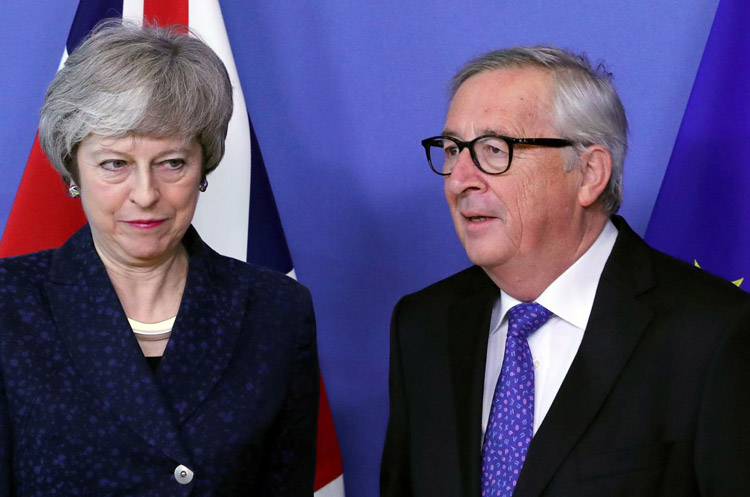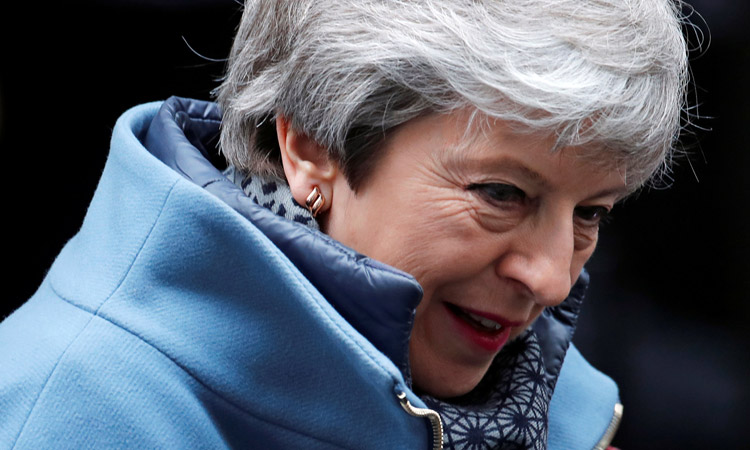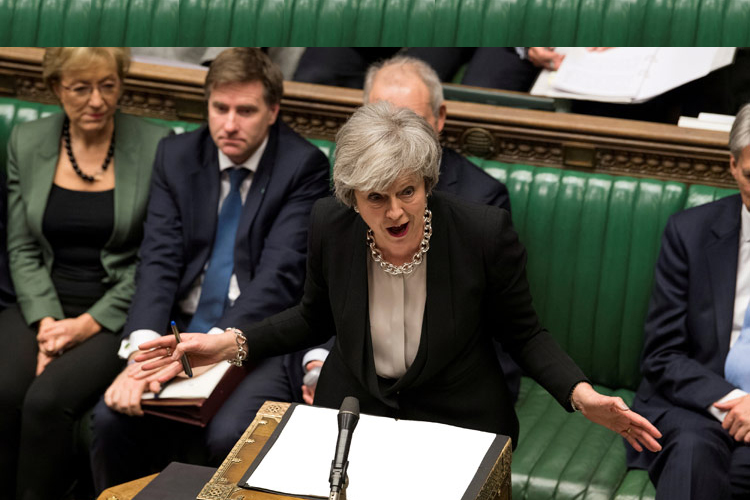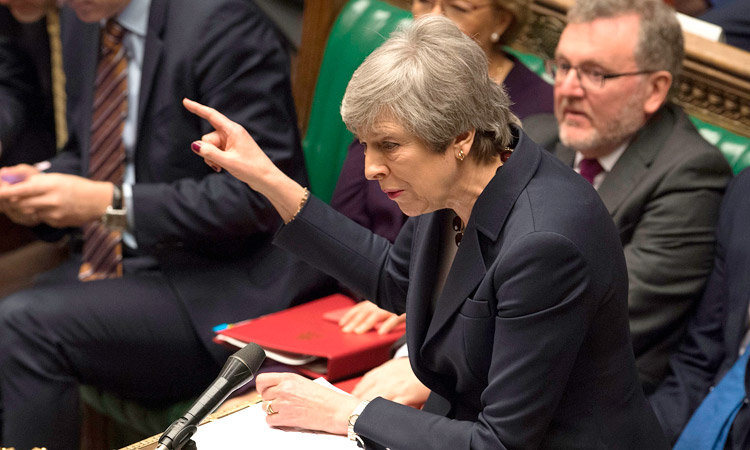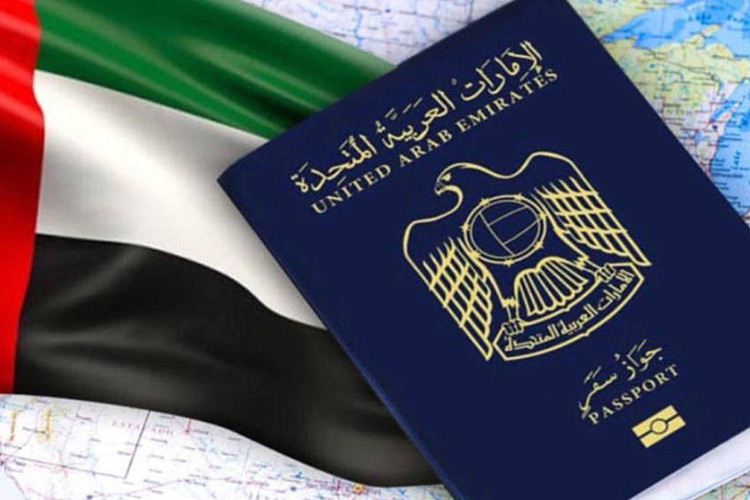May’s Brexit talks with Labour Party stall
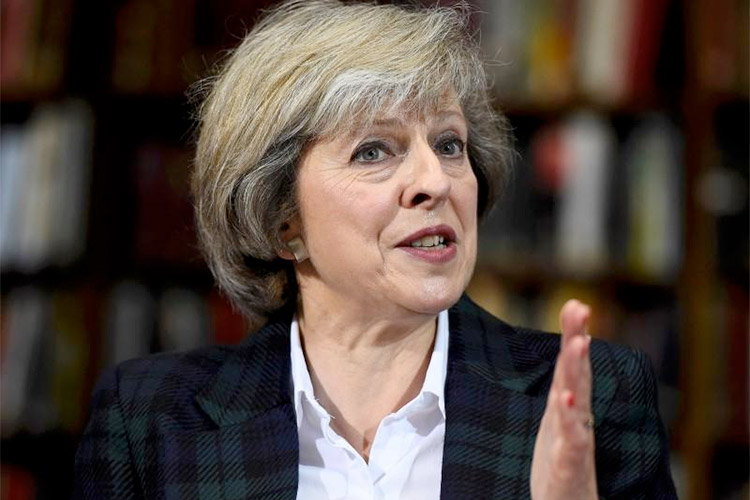
Theresa May speaks to the media in London.
May wrote to Brussels asking European Union leaders to postpone Britain’s exit from next Friday until June 30. But they have insisted that she must first show a viable plan to secure agreement on her divorce deal in the deadlocked parliament.
Labour, which she turned to reluctantly after failing three times to get her deal passed, said the government “has not offered real change or compromise” in three days of talks.
“We urge the prime minister to come forward with genuine changes to her deal,” a statement said.
Labour Brexit spokesman Keir Starmer said his party wanted the talks to go on, but the deadlock made it less likely that May would have a clear divorce strategy to show the other 27 EU leaders at a summit next Wednesday, let alone get them to accept her departure date.
Any extension would require unanimous approval from the other EU countries, all weary of Britain’s Brexit indecision, and could come with conditions.
“If we are not able to understand the reason why the UK is asking for an extension, we cannot give a positive answer,” said French Finance Minister Bruno Le Maire. German Justice Minister Katarina Barley tweeted: “This playing for time must end.” Deep divisions in May’s Conservative Party and government, and in Labour, have led to a marathon of votes in parliament, in which scenarios ranging from abandoning the EU with no transition period to cancelling Brexit have all been defeated.
Last Friday, May did the unthinkable by asking Labour to negotiate with her on a deal that might work for both.
Hoping this would satisfy EU leaders, she wrote to EU summit chair Donald Tusk proposing a delay until June 30 at the latest, accepting that Britain might have to hold European Parliament elections on May 23, which she had hoped to avoid.
“The government will want to agree a timetable for ratification that allows the United Kingdom to withdraw from the European Union before 23 May, 2019, and therefore cancel the European Parliament elections, but will continue to make responsible preparations to hold the elections should this not prove possible,” the letter said.
But there seems to be little appetite in Brussels for an extension that could create another cliff edge in three months. May had already asked two weeks ago for an extension to June 30, only to be turned down.
Tusk is planning to propose an extension of a year, which could also be shortened if Britain ratifies the withdrawal agreement, senior EU officials said.
“The only reasonable way out would be a long but flexible extension. I would call it a ‘flextension’,” one official said.
“It seems to be a good scenario for both sides, as it gives the UK all the necessary flexibility, while avoiding the need to meet every few weeks to further discuss Brexit extensions.” But Dutch Prime Minister Mark Rutte said May’s letter raised questions, adding: “We hope for more clarity from London before next Wednesday.” And France, which wants the EU to move on to other business including reforms proposed by President Emmanuel Macron, indicated it was not ready to accept any delay without a clear plan.
“If we are not able to understand the reason why the UK is asking for an extension, we cannot give a positive answer,” Finance Minister Bruno Le Maire told reporters in Bucharest.
Sterling fell against the US dollar immediately after Labour’s comments and stood 0.5 per cent down on the day.
With time running out, it was not clear how Britain would avoid the abrupt “no-deal” departure that business leaders in Britain and also neighbouring Ireland say would cause huge disruption.
Germany, as one of those with most to lose from a sudden dislocation of trade, has been one of those most tolerant of Britain’s turmoil.
Justice Minister Barley tweeted that “there can only be an extension with a clear direction”, but also proposed a potential way out by adding: “This includes the question of a second referendum.”
Reuters
